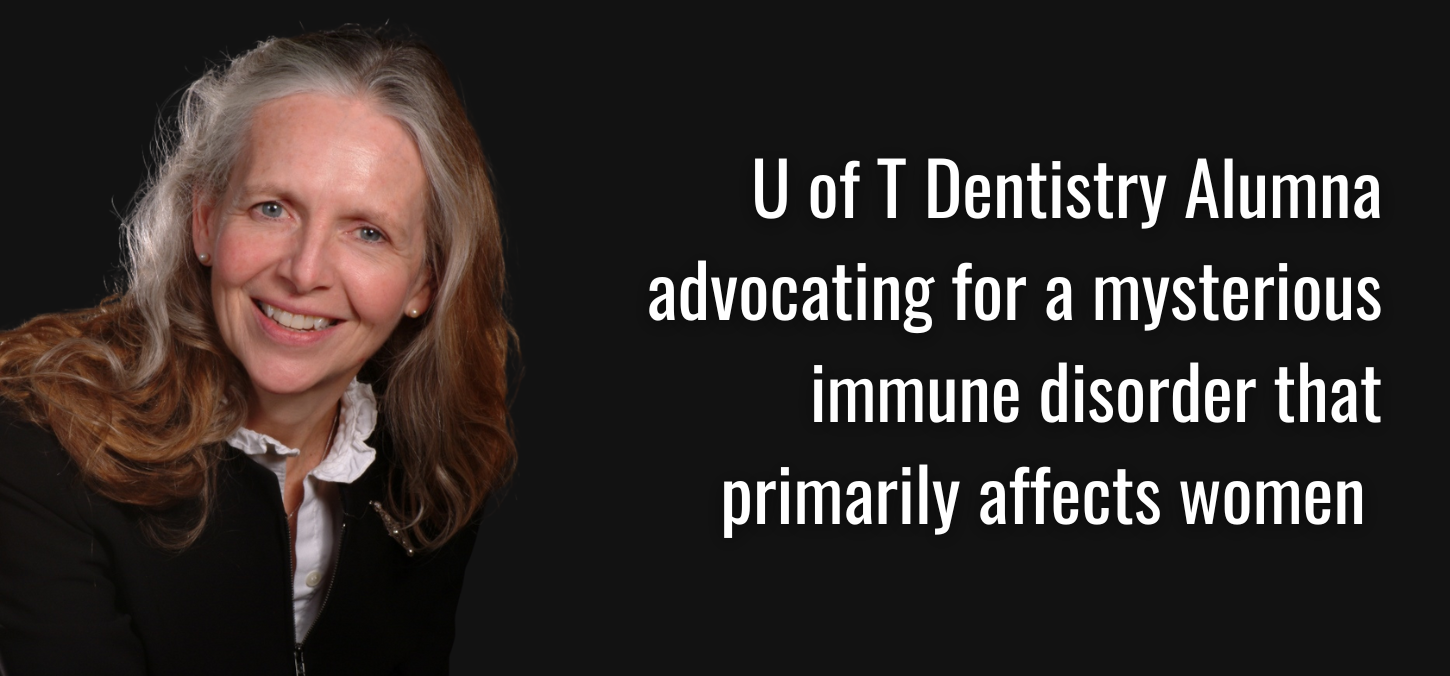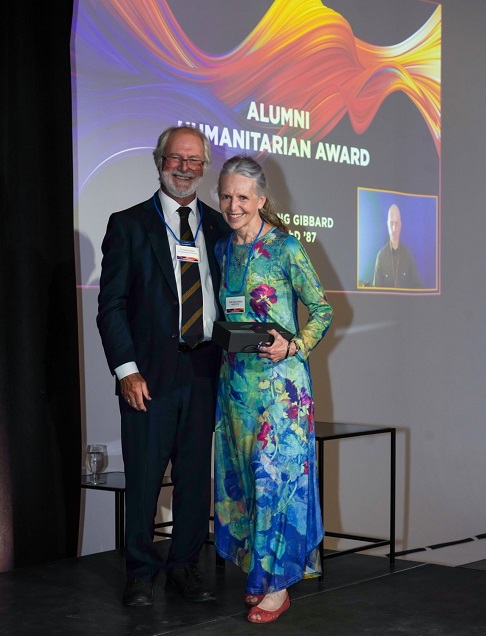
U of T Dentistry Alumna advocating for mysterious immune disorder that primarily affects women
By Nina Ambros
With International Women’s Day approaching, we are reminded of all the accomplishments of women in the traditionally male-dominated industry of dentistry. Many of our alumnae, like Leslie Laing (DDS 2000) are making an impact on their community, and beyond.
It’s hard to keep up with Leslie. She splits her time between working as a clinical instructor at the faculty dental clinics, working in private practices, and changing the lives of low-income seniors through access to dentures at Toronto Public Health dental clinics.
But the one thing that Leslie is truly passionate about is volunteering for the Sjögren's Society of Canada (SjSC). Leslie is the president of the SjSC, co-chair of its Medical Advisory Board, and member of its Board of Directors. She has been involved with the organization since 2008.
What is Sjögren’s disease?
Sjögren's is a systemic autoimmune disease that affects one percent of the Canadian population, 90 per cent of whom are women. The hallmark symptoms are dry eyes, dry mouth, joint pain, and excessive fatigue but it also has numerous systemic complications. It is frequently overlooked, misdiagnosed, and goes unnoticed since those that have it "look fine".
The dry mouth experienced by those with Sjögren's can lead to devastating oral decay, loss of dental restorations, subsequent loss of teeth, and increased bone loss around dental implants. There are more patients in Canada with Sjögren's than with lupus, scleroderma, and multiple sclerosis combined, yet few have ever heard of the disease.
A life of pushing boundaries
From a young age, Leslie had a strong calling for helping others. She earned her Bachelor of Education and worked as a teacher for over four years. Yearning for more, she pursued a PhD in microbiology and immunology at Queen’s University, which is where she was first introduced to Sjögren’s.
“I thought here is a really menacing disease. Not only is its name odd (pronounced SHOW-grins) but it just intrigued me with what devastation it could have, and that it affected mainly women.” she says. Leslie remained interested in Sjögren’s, as she worked as the resident immunologist for several years at a biopharmaceutical company.
She later returned to teaching when offered a position at the University of Toronto Schools. While there, she became acquainted with the parents of one of her students who were dental faculty members. Dentistry piqued her interest. Leslie listened to her gut instinct and decided to apply.
“I was 42 at the time and had nothing to lose but the registration fee.”
Leslie’s sons were four and seven when she became a student again. “I was a mature student when I entered dental school. I was closer in age to the profs than I was to the students. I made a vow to my sons and to myself that I would read to them every night and take care of them. It was challenging, but I would do it again in a heartbeat.”
Leslie graduated with her DDS in 2000, and then completed her prosthodontics clinical specialty in 2003. “When I was a grad prosthodontics student, I started looking for patients with Sjögren’s. If I learned of one in the clinics, I would meet them and start to question what their concerns were.”
Advocating for Sjögren’s
As the President of SjSC, Leslie travels the world and participates in international meetings to raise awareness of the disease. A few months ago, she was invited to give two talks to the American College of Rheumatology . Over 9,000 rheumatologists were in attendance, and another 4,300 virtually.
“I was surprised about the lack of awareness about oral health. I think that medical students need to learn more about the mouth, since it is in the mouth that so many diseases can first be detected.”

Although there is currently no cure available for Sjögren’s, nor can it be prevented, it’s important to raise awareness about the condition. “There is a lack of resources and information for patients in Canada. I want to bring attention to this condition so that newly-diagnosed patients and people living with the disease are able to connect with our SjSC community and know that they are not alone.”
As a testament to her passion, she is the recipient of the 2022 Queen’s University Alumni Association Humanitarian Award in recognition of distinguished work or volunteer service, at home or abroad, which has made a difference in the well-being of others.